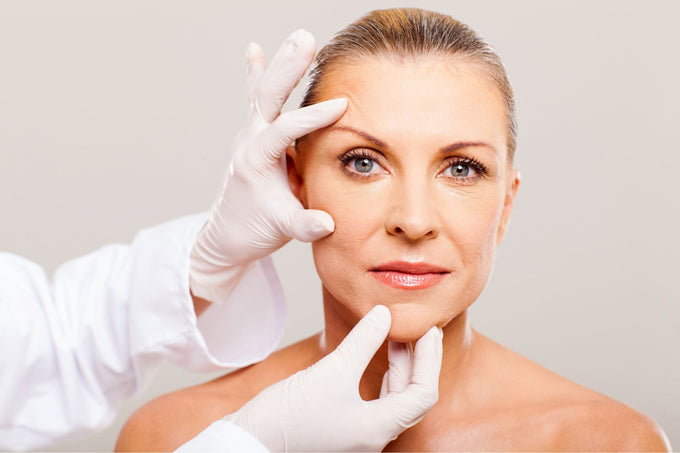Reasons to Avoid the Sun After Facial Plastic Surgery

The recovery period after any surgery is incredibly crucial. It goes a long way in determining the outcome of the procedure. That’s why following all post-operative instructions following your facial plastic surgery is essential. Among other things, the healthcare professional will advise you to avoid the sun.
Top Reasons to Stay Out of the Sun After Getting Plastic Surgery Done on Your Face
Here are some reasons why staying out of the sun is vital for healing.
Sun Exposure Can Cause More Swelling and Inflammation After Facial Plastic Surgery
Facial plastic surgery procedures, like the ones seen on this site, cause some trauma to your body due to incisions.
In response, the body releases chemicals that affect the blood vessels in your face. The blood vessels' permeability increases, allowing fluids and other chemicals to flood the area–hence the swelling. Usually, the swelling begins to subside after a week.
However, prolonged exposure to the sun can increase the severity of the swelling. When the swelling is more pronounced, the healing might take longer, and the recovery journey can be hectic.
Sun Exposure Can Worsen Scarring
A scar is a mark on your skin following an injury or cut. Your skin can scar when cut or broken open— including during facial plastic surgery.
Ideally, your plastic surgeon will do their best to camouflage the scar by making thin and precise incisions. They also close the incisions using specialized techniques to reduce scarring.
One thing you need to bear in mind is that the sun is a scar’s worst enemy. It can darken the scars irreversibly. It would be best to avoid the sun until the scars start fading. Other tips to minimize scarring after facial plastic surgery include avoiding smoking and having plenty of rest.
Can Cause Discoloration
Facial plastic surgery causes scarring due to the trauma caused on the skin. When the scars are fresh, they are more vulnerable to ultraviolet light, making them susceptible to burning.
That’s because the tissue is actively repairing itself and healing. The body releases multiple melanocytes (pigment-producing cells) as the skin heals.
If you spend too much time in the sun, you are at a higher risk of getting post-inflammatory hyperpigmentation.
The discoloration can last for years, so you are better off avoiding the sun altogether. Notably, people with darker skin are more prone to post-inflammatory hyperpigmentation.
The Sun Breaks Down Collagen
Did you know that collagen is the utmost plentiful protein in your body? It is the primary building block of your body’s connective tissues, like skin and tendons. It plays several roles, such as giving elasticity to your skin. It also helps wounds heal by attracting new skin cells to the wound. That means it’s beneficial when recovering from scars after facial plastic surgery.
However, UV light breaks down the collagen by penetrating the middle layer of the skin. That causes an abnormal buildup of elastin in your skin, which you don’t want right after your surgery. In most cases, people go for facial plastic surgeries to look younger. Unfortunately, sun exposure goes against that principle. It is among the leading causes of dermatologic aging.
Best Practices to Protect Your Skin From Sun Exposure Post Facial Plastic Surgery
The truth is, you cannot stay indoors forever after your facial plastic surgery —you need to go back to your everyday life. So, the question is, “How can one protect their skin against sun damage?” Below are a few tips:
No Sun in the First Week
Avoid the sun completely during the first week of your facial plastic surgery for optimal healing. This is easy to achieve since you also need adequate rest after the surgery—so the benefits are twofold.
Keep Your Face Covered
Consider purchasing a wide-brimmed hat or visor to keep the sun off your face. It is also essential to wear sunglasses to shield the incision lines from sunlight.
Scarves also come in handy in protecting facelift incisions from the sun. It would be best to cover the incisions for the first year following the surgery.
Choose Shady Spots
No pun intended—but ensure that you stay in the shadiest place you can find when you are outdoors. It could be under a tree or adjacent to a tall building. If you can’t find complete shade, a partial one is better than total sun exposure.
Never Skip Sunscreen
Sunscreen is essential—even for people who haven’t undergone facial plastic surgery. Always ensure your sunscreen has an SPF of at least 30, and apply generously. Remember to apply it on the incision, even if it is beneath clothing. Apply sunscreen about half an hour before sun exposure for maximum protection.
This Is Not the Time To Go Tanning
Avoid tanning salons at all costs.
Limit Your Exposure to the Sun
In the long term, ensure that you limit the amount of time you spend directly under the sun as much as possible. Besides, sun exposure harms the incisions and can lead to other problems like vision challenges.
It is also essential to have a comprehensive skincare routine. You might consider products such as retinol and SPF moisturizer to maintain the glow.
For inspiration on sun-safe UPF clothing, including sun hats and scarves, be sure to check out UV Skinz.
Written by Ruth Riley






